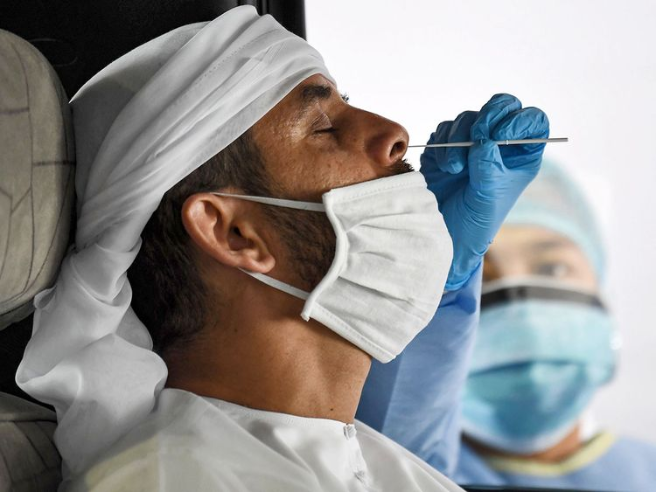Hospitals, clinics record sharp falls in outpatient visits and cashflow since March 15
Dubai: UAE hospitals are at the frontlines in tackling the worst effects of the COVID-19 outbreak – but it is now starting to tell on their financial health, according to senior industry sources.
Hospitals and clinics are now facing a significant loss of revenue because of a sharp drop in outpatient visits for non-COVID-19 ailments and in the number of elective surgeries getting done at healthcare facilities across the UAE. (An elective surgery refers to procedures that were decided in advance, but does not warrant a medical emergency. Healthcare facilities have been told not to take on any elective surgeries until such time the coronavirus pandemic subsides in full.)
“There has been a significant reduction in both footfall and income for hospitals and clinics since March 15, when the movement restrictions started to be put in place,” said Dr. Azad Moopen, Chairman and Managing Director at Aster DM Healthcare. “With elective procedures at a standstill, the cashflow has come down.
“This is going to leave an impact on UAE healthcare sector even when things get back to normal.”
Brace for the worst
Singaram Annamalai, Chief Financial Officer at Prime Hospital, the cashflow situation could reach its lowest point by end May or beginning of June.
“Because hospitals are still getting the cash from insurers now from patient visits that happened in January or February,” said Annamalai. “But since the last week of March, everyone has been extra cautious on any visits, social distancing is the norm, and there are the restrictions on movements.
“Our outpatient consultations have seen a 70 per cent decline, and our cash paying patients has actually dropped to zero. By end May, early June, our insurance-generated payments too will have seen significant drops.”
According to healthcare industry sources, managements at some of the smaller facilities are already taking steps to lessen the impact on their bottom-line. Specialists have been told they would have to take 30-50 per cent salary cuts, and that they need to put in fewer hours at work.
So far, the more extreme steps – of job cuts – that other sectors have already taken are to be repeated in healthcare.
Dr. Moopen says Aster will not have any layoffs because of the current situation. But other steps wil need to be taken immediately to stem the cost bleeding.
“We are telling those specialists to take whatever annual leaves they are eligible for,” he said. “They can come back when the situation improves and patients once again start coming back.
“But it’s a fact that we have put on hold all recruitments – no hospital operator can afford to increase his costs at this stage.”
Valid reason
Operationally, it makes sense. HR-related costs can make up 50 per cent of a hospital network’s monthly running costs.
“In some cases, manpower costs can balloon to 55-60 per cent,” said Annamalai. “After all, it’s a manpower-driven industry.
“UAE healthcare industry will be forced to make tough decisions – but it will be done step-by-step. Salary reductions on a temporary or permanent basis have been talked about.
“But hospitals and healthcare industry personnel are right on the frontlines in tackling this disease – to even talk about job losses and salary cuts can be so demoralizing. Hospitals are functioning on a 24×7 basis, and so are most of the personnel. It’s not like a trading company with a showroom and where staff can work for a set number of hours each day.
“Every hospital and clinic operator needs to go about making adjustments in a sensitive way.”



